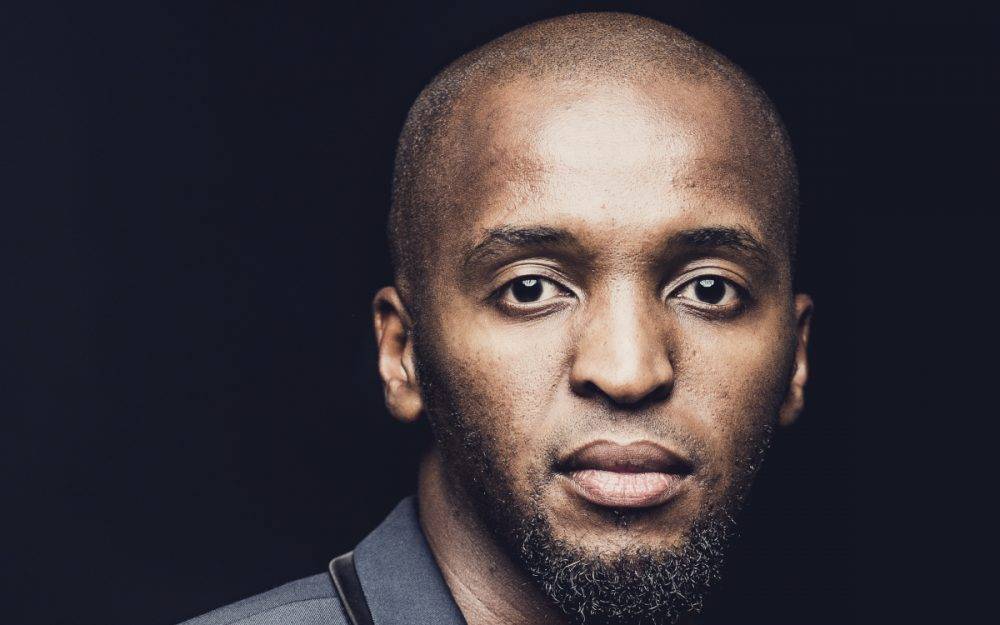Tendeka Matatu, Netflix Director of Content, Africa
South Africa’s youth take centre stage in film boom
South Africa’s film and television industry is exploding with potential, unleashing a creative revolution and rewriting the script for the country’s youth. Amid the industry’s blockbuster boom, content executives and aspiring creatives are faced with exciting prospects and significant challenges, grappling with the question: can the industry’s talent pipeline keep pace with skyrocketing demand? Fortunately, streaming titan Netflix is well-poised to ensure that the answer to that question is a resounding yes.
This is according to Netflix’s Director of Content for Africa Tendeka Matatu. While exciting, he says this surge has exposed a critical need to expand the talent pool: “The value chain of any production is so vast, even though most people only think of the actors, directors, writers and producers.”
At the end of a film or series, he suggests staying glued to the screen as the credits roll: “Every name you see is a job, and every job is done by a person. From camera and sound operators, set builders and decorators, wardrobe crew, lighting technicians and hair and make-up artists to caterers, accountants, lawyers and drivers, and of course post-production, VFX and special effects … the industry’s ecosystem is rich and diverse and brimming with opportunities.”
Beyond entertainment
The impact of a thriving film industry extends far beyond entertainment, contributing significantly to employment and economic development. The streamer’s international production One Piece, filmed in Cape Town, saw Netflix spend $48.7 million (approximately R897 million) with 625 local service suppliers, mostly SMMEs. “This was our biggest ever production in Africa, and One Piece created 1 000 full-time equivalent jobs, of which 27% went to women,” Matatu explains, adding that even more people are employed in film-adjacent sectors such as hospitality, accommodation and transport.
The industry also plays a significant role in boosting tourism. Netflix’s Cultural Affinity Survey revealed international viewers of South African content were 3.1 times more likely to visit the country on their next holiday. ”Audiences also showed an increased affinity towards South African culture, languages, locations, foods, music and people, which has a knock-on effect across many sectors and ultimately contributes towards the growth of the national economy.”
Upskill and re-skill for success
Amid these opportunities, however, the world is changing and the industry is evolving, driven in part by rapid technological advancement: “This is why it is important to constantly seek excellence, find ways to upskill oneself and be open to learning and honing your craft. The most successful industry players are adaptable, versatile, resilient and always open to learning.”
 Katleho Ramaphakela, Managing Director of Burnt Onion Productions.
Katleho Ramaphakela, Managing Director of Burnt Onion Productions.
Katleho Ramaphakela, Managing Director of Burnt Onion Productions, embodies these qualities, which he says helped him navigate industry challenges to emerge as a successful writer, director and producer — despite never having studied film. “Everything I know came from on-the-job training.”
Now known for his work on fan favourites like Seriously Single, How to Ruin Christmas and How to Ruin Love, Ramaphakela’s industry journey began on camera as an actor. Driven by curiosity, he expanded his skillset, laying the foundation for his current role: “My passion grew to want to know more about the other facets of TV production, so I took it upon myself to train and learn about the work going on behind the scenes.”
Sibusisiwe Gugu Manqele is another multi-talented artist whose ability to adapt and evolve has facilitated her success as an actress, director, writer, producer and scholar. Her career also started on-screen with lifestyle and reality shows, eventually leading her to promo directing, voiceovers, and scriptwriting for dramas and telenovelas, including local classics like Skeem Saam, House of Zwide and Gomora.
Regardless of her role in the production process, Manqele’s motivation has always been rooted in the power of storytelling. “Stories are a good way to educate and entertain,” she says. “Messaging comes through beautifully in stories reflecting our society.”
Overcoming barriers to entry
Both creatives agree that breaking into the industry can be challenging. Manqele recounts relentlessly knocking on doors; her persistence and perseverance eventually paid off when she was offered a role as an assistant on a SABC show. She soon found her business skills and industry knowledge sorely lacking. “I had to learn a lot on the ground,” she admits. “Formal education can sharpen creative skills, but business training still lacks in many curricula.”
 Sibusisiwe Gugu Manqele, Multidisciplinary Artist, Scholar, Social Entrepreneur
Sibusisiwe Gugu Manqele, Multidisciplinary Artist, Scholar, Social Entrepreneur
As a young, black-owned company, Ramaphakela says Burnt Onion Productions also faced significant barriers, particularly in accessing financing and social capital. These obstacles, while daunting, fostered resilience and innovative problem-solving skills.
According to Matatu, the rise of paid internships, training academies, and industry initiatives helps bridge some gaps and provide much-needed support for aspiring creatives. One example is Netflix’s Grow Creative, “which consists of a team of champions whose sole focus is to find and drive initiatives in local production industries to upskill and strengthen the talent pipeline”.
Under the Grow umbrella, the Creative Equity Scholarship Fund was established to assist aspiring young creatives to access institutions of higher learning and complete their studies. The streamer teamed up with the University of Southern California School of Cinematic Arts to offer a series of workshops and masterclasses to local creatives to upskill and re-skill in various disciplines in production.
Opportunities abound
The streamer also partnered with UNESCO to host a short film competition for emerging talent. In African Folktales, Reimagined, six young filmmakers from across the continent paired with professional mentors and were supported during the creation and production of their films, which are now streaming on Netflix.
Manqele says young people breaking into the industry should utilise these and other resources, like guilds, workshops and social media platforms, where established creatives share their expertise. “It’s imperative to seek out this knowledge and these spaces.”
Ramaphakela agrees, adding that in this digital age, aspiring creatives have unprecedented access to resources and information. From screenplays to acting tips, directing techniques to editing skills — all are available at one’s fingertips.
They also stress the importance of on-the-job training, encouraging young entrants to seek internships and hands-on experiences on set. And while Ramaphakela sees potential in the growing support from government and private sector players like Netflix, he says more support is needed to create a sustainable culture of nurturing young talent.
Stepping in to fill the gaps
As technology rapidly advances and AI and automation loom on the industry horizon, staying updated with emerging trends becomes crucial. And while technical skills are important, soft skills and leadership are often overlooked. “This is actually where the fundamental gaps in the industry are,” Ramaphakela observes. “Our space is a creative one, and we tend to find that heads of department never get to advance their managerial and financial management skills.”
This, says Matatu, underscores the need for a holistic approach to professional development, balancing creative talents with practical management abilities. “Communication skills and time management in the industry are vitally important; in an environment where budgets and deadlines reign supreme, effective communication and time management can make or break a production.”
According to Manqele, emotional intelligence and problem-solving are also essential. Self-awareness, the ability to learn from mistakes and the drive to leverage every opportunity allowed her to pivot and adapt. She says self-motivation and a visionary mindset can drive individuals to create opportunities and bring about change where representation is still lacking.
Young creatives should embrace these skills, work collaboratively with peers, and maintain a strong support system to safeguard their mental health in an industry known for its highs and lows. “You need to know yourself and understand yourself within this industry,” she advises.
To greater heights
As South Africa’s film industry flourishes, it offers untold opportunities for those willing to learn, adapt, and bring their unique perspectives to the table. The next generation of film professionals will not only shape the stories that dominate our screens and our conversations; they will also contribute to the country’s cultural and economic landscape in profound ways.
As the creative economy continues to evolve, the path to success lies in embracing diversity, being open to new opportunities while honing existing competencies, and developing a balance of creative talent, practical skills and leadership abilities. For youth looking to make their mark, the message is clear: be curious, be adaptable, and never stop learning.